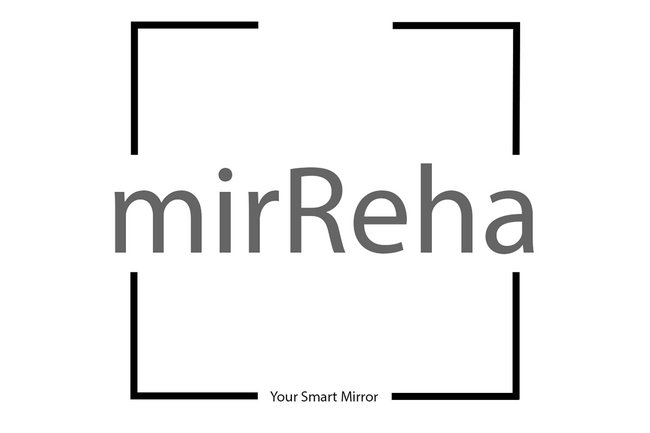Breadcrumbs
- Digital Healthcare
- Projects
- MirReha – a smart mirror for patients with Parkinson’s disease
MirReha – a smart mirror for patients with Parkinson’s disease
The smart mirror “MirReha” addresses patients with Parkinson’s disease, they use the mirror to perform exercises at home in addition to logopaedic therapy.

Background
The Parkinson’s disease is affecting more than six million people worldwide (Arjunan & Kumar, 2022, p. 32). Parkinson’s patients suffer from a wide range of symptoms like motor and speech impairments (Arjunan & Kumar, 2022, p. 6f).
Digital interventions could extend the current treatment and improve the therapeutic approach especially in the field of speech therapy. Currently there is no existing technology that allows the patient to perform exercises at home in front of a mirror while being instructed (Frieg et al., 2017). Therefore, a smart mirror could be used to display exercise and to improve the compliance (Besserer et al., 2016).
Beneficial use cases for Parkinson’s patients displayed on a smart mirror could be motivational quotes and weekly goals, mimic exercises, training articulatory movements, tongue training, training of speech loudness and training for an increased swallowing frequency (Deuschl & Nebel, 2017; Van Leer & Connor, 2015). In addition, patients could benefit from instructions about dental care, postural improvement and breathing exercises (Barbe et al., 2017; Drissi et al., 2020; Kwok et al., 2017).
Project
The aim of the project „MirReha” is to develop a smart mirror that supports speech therapy for patients with Parkinson’s disease in the home setting. The smart mirror provides exercises, that extend the conventional speech therapy with a speech therapist. These exercises can be performed in front of the mirror in the own bathroom while being instructed by the mirror. The exercises and instructions of the mirror tend to improve the loudness of speech and the mimic of the patients. In addition, the smart mirror can enhance the motivation to perform the exercises and increase the patients’ compliance. The visual and auditive feedback of the mirror for the performed tasks can also improve the self-awareness of the own symptoms.
In the project a prototype with different hardware components, like a Raspberry Pi, a computer display, a spy-mirror-glass and a software including a user-friendly interface will be developed. Further components like a microphone and a camera will be used to extend the functionality of the mirror (e.g face tracking). After the development of the smart mirror the technology will be evaluated by experts of the field (e.g speech therapists, head nurses).